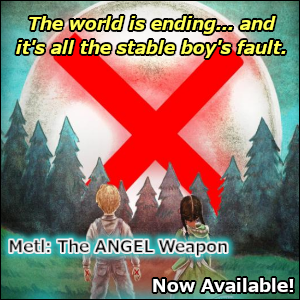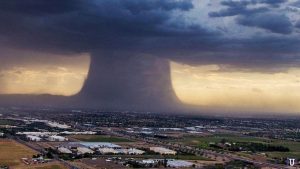Sometimes writing a tiny story can feel harder than writing a novel.
Let’s discuss some tips for crafting “microfiction,” then write some 100-word stories together!
During the last stream, a subscriber requested that we go over how to write 100-word stories.
Watch what we did here, or scroll down for highlights.
How to Write a 100-Word Story
- Writing a super short story (a.k.a. “micro fiction” or “flash fiction”) can be surprisingly difficult
- It may take longer to write a novel than a 100-word story, but it still takes a lot of work to produce something good, and the guidelines are very different
- So let’s go over 3 tips on how to write 100-word stories, then write some together!
#1. Before you start: pick the kind of short story you want to tell
- For novels, the vast majority follow the same structure: introduce a character, have something bad happen to them, they overcome the conflict, and happy ending
- But for super short stories, there is a LOT more variety: since the reader is spending such a short time reading it, you can get away with stranger ideas
- Here’s a sampling of some 100-word story “genres” and examples for each:
- A snapshot (heavy on description/atmosphere)
- http://www.100wordstory.org/aunt/
- An anecdote (to make the reader think)
- http://www.100wordstory.org/improbabilities/
- An emotional piece (sad, happy, funny, surprise)
- http://www.100wordstory.org/maze-runner/
- A snapshot (heavy on description/atmosphere)
#2. As you write: start your story in the middle
- For novels, you usually want to start at the beginning, introduce a character, their normal life, blah blah blah
- But for super short stories, you don’t have the luxury of that since you only have 100 words: you need to jump right into the most important part
- Here’s an example of a story that jumps right in, not even telling us what the woman is diagnosed with: http://www.100wordstory.org/drive/
#3. When you’re done: edit even more harshly than usual
- For novels, you have tens of thousands of words, so it’s not a big deal if a few dozen or hundred aren’t absolutely necessary
- But for super short stories, you have to make EVERY word count, cutting everything that isn’t 100% necessary
- Some easy cuts are phrases like “there are/were,” weasel words like “very, almost, just, many,” not to mention unnecessary explanations/exposition
- Here’s an example of a story that leaves a lot out, but is still perfectly understandable to the reader: http://www.100wordstory.org/after-a-heartless-winter/
After that, chat voted on some images to inspire our own 100-word stories. We wrote a snapshot, anecdote, and emotional story for each.
Here’s what we wrote:
Image #1
A snapshot (heavy on description/atmosphere)
Looking at my younger self, I feel old and crusty. My skin was smooth and bright, dewey drops of the sun itself, eclipsed only by my long, dark hair. Every picture I see myself in, I’m sleeping, tired, yawning — naps were my concerts, and my best dates were with my pillow. I was told that I was sleeping my youth away, that I’d regret it when I got older. But now, looking at that girl I used to be, I’m not jealous of her skin or hair.
I used to sleep to dream, but now I just dream of dreaming.
An anecdote (to make the reader think)
When the mask first arrived, I refused to wear it. I didn’t want to see its gray, scarred skin covering my own, but my parents said I’d be ready one day. None of my friends wore theirs, preferring to get eye-swirls instead, so I decided the mask would stay hidden in the bathroom closet forever.
Forever turned out to be two weeks. One morning, it felt right to put the mask on. It fit perfectly, so much that it blended and melted right into my face. I didn’t even look any different, aside from the swirls it gave to my eyes.
An emotional piece (sad, happy, funny, surprise)
The whispers distract me as I sit at my desk. A face slowly hovering behind me, its gaseous form hissing into smoke and spiderwebs. It’s impossible to concentrate as its thin tendrils brush against my hair, poking against the back of my neck with its sharpened tips. I can’t do anything when it moves quickly, only endure, but when it stops for just a moment too long behind my ear.
SMACK!
I bring back my hand and look at the quivering fly, now paste in my palm, and scrape it into the trash. Finally, I can finish my math homework.
Combining Images 2 & 3
A snapshot (heavy on description/atmosphere)
The pillar of cloud grew thicker and stronger, its girth expanding to an intimidating size. The opening up above didn’t know if it could handle the monster it had expanded into, but the moisture of the rain made its penetration smooth and seamless.
Faster and faster the two clouds tumbled over each other, becoming one with the earth and sky. Their passionate yells thundered, sparks flying between them.
Until finally, the eruption. Millions of small, white balls poured down, crashing against the ground.
After the climax came stillness. The whirlwind of emotions faded — until the storm would brew again.
An anecdote (to make the reader think)
This is an emergency weather broadcast. We have just received word that totally-hot-and-young couple Stacy and Trent opened their tent after two hours of fervent love-making in the woods, releasing the heat of their passion into the air. The sudden warmth mixed with the stationary cold front, creating a supertornado now ravaging the northwest. Based on both meteorological data and Stacy’s first-hand reports, while the supertornado is the largest ever recorded, it’s still only about half the size of Trent’s “lightning rod.” Early interviews with those who lost their homes have resulted mostly in smiles and high-fives for the couple.
An emotional piece (sad, happy, funny, surprise)
Stacy snuck into Trent’s tent when everyone else was asleep. With only the light of their phones, they smiled at each other. Finally, they were alone together. They could do what their hearts, and other parts, had been begging them to do all day.
They held each other’s hand! Finally, the aching of their fingertips was quenched with the cool feel of the other’s skin. They leaned in close, to clasp the other hand too.
A loud zip stopped their lewd activity. Bible camp counselor Mr. Yortle stood there, opening their tent, the wrath of a tornado on his face.
Be sure to check out the video for a dramatic reading of the stories!
If you want to join us and help write a story by trolling in chat, or share your own writing for feedback, then we’d love to have you join us on Twitch.
And you missed the stream, you can still watch them on the YouTube channel or watch the full stream reruns.
Hope to see you next time, friend!

Want to try your hand at writing a 100-word story but don’t know where to begin? Here’s a quick guide to get you started
Legend has it Hemmingway won a bet with his six-word short story: “For sale: baby shoes. Never worn.” His challenge was to move his audience with a few brief words. The ones he came up with show that being a man (or woman) of few words doesn’t stop you from saying a great deal with them.
The skill is in choosing the right words and allowing them to suggest far more than they say. The human brain is a miraculous thing, with endless capacity for filling in the gaps. The challenge of writing a piece of flash fiction is to say enough to convey a story which resonates, while allowing the reader to infer further layers of meaning.
It also requires you to trust yourself as a writer and to resist the temptation to over-explain.
In flash fiction writers aim to tell an entire story in a few short paragraphs. The story should have a beginning, middle and end and often finishes with a surprise or twist, which prompts the reader to reflect further.
“Baby Shoes” illustrates how it is possible to do this with the utmost brevity. Traditional jokes follow a similar format: a man walks into a bar, he says or does a few things and then there is a punch line.
«The most valuable of all talents is that of never using two words where one will do»
To boil a whole story down to a few sentences is hard, especially if you are used to writing longer stories or even full-length novels. But flash fiction is a brilliant exercise in restraint. Trying your hand at it can help even longer pieces of work become sparser and elegiac.
Thomas Jefferson famously said “the most valuable of all talents is that of never using two words where one will do.”
Writing flash fiction is a process of choosing the right words and making the ones you have chosen sing for their supper.
The following tips will help you consider how to make your 100 words speak volumes.
Think of a title
When you’ve got a limited word count, a good title can start to tell the story. “Something nasty in the woodshed” or “Skating on Thin Ice” alert the reader to a reveal or a disaster before you’ve even begun writing.
Make an immediate start
Your beginning should take the reader straight to the heart of the story, introduce the main characters, establish the setting and raise a question that will be answered by the end.
Keep it simple
Although you want to write a complete story, you do not have time for back-story or sub plots. Focus on a single scene in a particular moment of time.
Stick with a slim cast of characters
Ideally just one or two. If necessary, others can be mentioned or alluded to. Writing in the first person and the present tense also helps with economy of words.
Say it succinctly
Speech allows characters to encapsulate storylines and infer meaning you may not have time for with exposition. Do away with speech attributions too, if it’s clear who is speaking.
Make your words work
Think about how you can set the scene and convey emotion using single evocative words.
Shorten your sentences
Be creative with form. Use lists. Play with punctuation. You don’t need perfectly formed sentences. Sometimes a single word will suffice.
Take the reader on a journey
No matter how short, all stories need a sense of progression. Something must change by the end of it. The characters must have moved on from where they were at the beginning.
Introduce the unexpected
Surprise the reader. Show them something new. Give them something to take away from your story.
Edit
Once your story is written, see what you can take out without changing the sense of it. Strip out superfluous words so that what you are left with is the brilliant, evocative essence of your story.
Now you’re ready to write a 100-word story of your own! Make sure you enter our competition by submitting your story by May 1, 2022 here.
DEADLINE FOR ENTRIES NOW EXTENDED FOR CHILDREN’S CATEGORIES—ENTER BY MAY 20, 2022
***NOW CLOSED FOR ADULT ENTRIES***
Lizzie Enfield is the author of five novels and one non-fiction title who also works as a creative writing tutor and mentor elizabethenfield.com
Read more: Previous 100-word story competition winners
Read more: How to unleash your creativity
Keep up with the top stories from Reader’s Digest by subscribing to our weekly newsletter.
Home > Free Fall
This is an example of how to write a short story about a free fall. It provides practice for the writing section of the Cambridge English B1 Preliminary exam.
Please note for the real test, it isn’t a gap-fill exercise. You will write a short story using about 100 words.
B1 Preliminary Writing Part 2 Short Story: Free Fall
Your English teacher has asked you to write a story.
Your story must begin with this sentence: It was dangerous, but I knew that I had to do it.
Listen to the Short Story.
More exercises available:
We add reading and writing exercises on a regular basis. Why not bookmark our site, so you can come back to practice anywhere or at any time of the day?
- Reading Part 1 & 2
- Reading Part 3 & 4
- Reading Part 5 & 6
- Writing Part 1
- Writing Part 2
Part 1 — Read five real-world notices, messages and other short texts for the main message.
Part 2 — Match five descriptions of people to eight short texts on a particular topic, showing detailed comprehension.
Part 3 — Read a longer text for detailed comprehension, gist, inference and global meaning, as well as writer’s attitude and opinion.
Part 4 — Read a longer text from which five sentences have been removed. Show understanding of how a coherent and well-structured text is formed.
Part 5 — Read a shorter text and choose the correct vocabulary items to complete gaps.
Part 6 — Read a shorter text and complete six gaps using one word for each gap.
Write about 100 words, answering the email and notes provided.
Write about 100 words, either an article or story.
Articles
Short Stories
In addition, we add listening and speaking exercises in order to practise for this part of the B1 Preliminary test.
- Part 3 — Listening
- Part 4 — Listening
- Speaking
Part 3 — Gap-Filled Exercise
Part 4 — Multiple Choice Exercise
The B1 Preliminary Speaking test has four parts and you take it together with another candidate. There are two examiners. One of the examiners talks to you and the other examiner listens.
The more words you encounter and understand, the broader your day-to-day vocabulary will become. Our word games and puzzles are an excellent way to help to reinforce spellings in your mind.
- Crosswords Puzzles
- Word Searches
- Word Puzzles
Especially helpful are exercises that are focussed on a theme or topic as these provide word retention practice so you can be confident to read, write, speak and listen successfully.
- Vocabulary Skills
- Grammar Skills
- Writing Skills
- Speaking Skills
Cambridge English Examinations:
Cambridge English exams are designed for learners at all levels from the pre-intermediate level Cambridge English: Key (KET) to the very advanced level Cambridge English: Proficiency (CPE). These exams give candidates proof of their ability to use English in a wide variety of contexts, relevant to work, study and leisure activities.
A2 Key | B1 Preliminary | B2 First
Not a word more, not a word less: Can YOU write a better 100-word short story than Jeffrey Archer’s?
Jeffery Archer will decide on the best entry in this competition where
the winner will receive £250 in book tokens for their 100-word story
_________________
Contest
HOW TO ENTER
TO
ENTER, send your work to shortstory@mailonsunday.co.uk or write to
100-Word Short Story, The Mail on Sunday, Northcliffe House, 2 Derry
Street, London W8 5TS. Entries must be received by midnight on Friday,
November 17, 2017. Entries must run to exactly 100 words, excluding the title.
The top ten stories will be published in The Mail on Sunday and the
winner will receive £250 in book tokens.
_________________
When it comes to writing stories, Jeffrey
Archer knows a thing or two – he’s produced a string of novels that have
sold an astonishing 300 million copies around the world.
And
now he has issued a remarkable challenge to Mail on Sunday readers – to
beat him at his own game. The author has published a new collection of
short stories, Tell Tale, which includes a tale of just 100 words – and
he wants readers to equal or beat his effort.
The
writer of the best entry, which will be selected by Lord Archer, will
receive £250 in book tokens. And the top ten best entries will be
published in The Mail on Sunday.
Lord Archer, whose first
novel, Not A Penny More, Not A Penny Less, was published in 1976, hopes
the competition will appeal to anyone who considers themselves a budding
writer.
He said: ‘Many
people think they can write a book. Many would like to write a book. I
am saying write a 100-word story and see if you can beat me. I think it
is true that if you can do a 100-word story you can do more.’
Archer warned that the task is not as
simple as it seems. But he offered some tips for readers after the
experience of writing his own 100-word story, called Unique.
He said: ‘It took three or four hours to think of the idea of my story with its beginning, middle and end.’
After
hitting on the basic idea Archer then turned his attention to the
title. He said: ‘That is vital. If you have the correct title you are
telling the reader something immediately.’
The next step was to keep continually reworking the piece until he ended up with exactly 100 words.
‘I
got up at six at the morning and started work. The first draft was 116
words. The second was 104. The third was 98 words. Then I had to work
out which two words to put back in.
‘However long your first draft is, you have to start pruning.
‘Economy of language is vital and every single word counts. You have got to get rid of words that are not needed.
‘I wrestled with it and I had it double spaced so I could look at each and every word.’
______________________
Sample by Jeffery Archer:
UNIQUE
BY JEFFREY ARCHER
Paris,
March 14th, 1921. The collector relit his cigar, picked up the
magnifying glass and studied the triangular 1874 Cape of Good Hope.
‘I did warn you there were two,’ said the dealer, ‘so yours is not unique.’
‘How much?’
‘Ten thousand francs.’
The
collector wrote out a cheque, before taking a puff on his cigar, but it
was no longer alight. He picked up a match, struck it, and set light to
the stamp.
The dealer stared in disbelief as the stamp went up in smoke.
The collector smiled. ‘You were wrong, my friend,’ he said, ‘mine is unique.’
Read more: http://www.dailymail.co.uk/news/article-5050783/Can-write-better-story-Jeffrey-Archer.html#ixzz4y7eZ44fy
I was introduced to author Michael Brookes through one of his horror stories. He is an excellent writer, and he was doing something on his website I’d never seen before: Drabbles. Little did I know that Michael and I would become friends. Through him, I met Jonathan Hill, the king of drabbles. He has written many books, among them 100 One Hundred Word Tales and Beyond One Hundred Drabbles.
So what exactly is a drabble? To quote Jonathan Hill, “A drabble is a piece of writing precisely 100 words long. A challenge to write, but fun to read, they often tell a tale with a twist or encapsulate an idea or emotion.”
As I read both of Hill’s books, I became a huge fan. His stories run the gambit of emotion from hysterically funny, to sad, to make-your-blood-run-cold, to better-look-over-your-shoulder, to make-you-stop-and-think. With Jonathan’s encouragement, I began to write drabbles on my book blog. I’ve written thirty-five to date.
It’s challenging work– you need to tug at the heartstrings or inspire terror in a short time to really pull off this kind of writing. It’s also a great exercise in editing, in getting to the heart of what you’re trying to say by trying to say it in as few words as possible. You could even use it as a tool when writing a short story or novel– first create a drabble as an exercise to figure out the core of your story.
And, as with almost anything, the more you do it, the better you become.
I encourage you to give it a try. (Note to writers age 12-22: see Germ’s Week One Writing Challenge to submit your drabbles!) But beware: drabbles are like potato chips. You cannot write just one.
Here are two of mine:
A Chat
“Do we talk now?” she asks him. “What is there to talk about?” “Us.”
“I don’t trust you anymore. I just exist. I hate life. I pray to sleep
late. I do not enjoy television. It is like watching a black hole. I
want to… the only thing I can count on is going to work and coming
home.” This breaks her heart because it is all her fault. She knows his
job has a high suicide rate. She is scared. If she never leaves the house,
she can count on what he says, going to work and coming home.
It’s Your Call
She watches the snow fall. It has a calming effect on her. But she does
not know how her night will progress. Can she make plans? Sure! Lots
of books to read. She can watch television downstairs and play with the
dog. It is very quiet and still here. Sometimes comforting to her,
sometimes unnerving. She thinks about him. How her night goes always depends
on him. With all the arguing lately, she is looking forward to a one-person slumber party.
She looks at the snowfall again. The phone rings– he will not be working. She is happy and sad.










